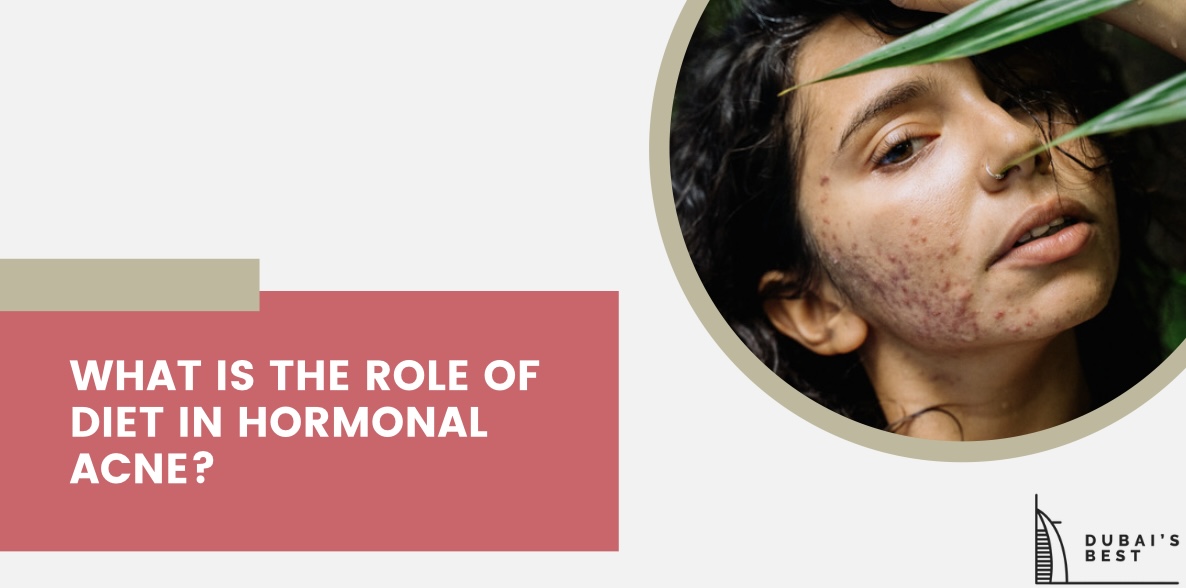What is the role of diet in hormonal acne?
We all know that the way our bodies look on the outside can reflect how healthy we are on the inside, but sometimes it’s hard to connect the dots.
For some people, hormonal acne is an obvious sign that something is off in their diet or lifestyle.
One way to approach treating your skin is through proper food and nutrition. For other ways, you may also choose to get cosmetic treatments for your hormonal acne on your next payday.
What is hormonal acne?
If you’ve noticed a link between your breakouts and a certain time of the month, then hormonal acne may be to blame.
As far as who gets it, if you have ovaries and get periods, you’re susceptible to developing hormonal acne.
Hormonal acne isn’t gender-specific. Individuals with ovaries get it most frequently, but individuals with testes can get it too!
Hormones are responsible for many bodily functions such as growth and reproduction, so, unsurprisingly, they have an essential role in skin health.
Indeed, acne is known to be related to hormone levels. Hormone levels are affected by what we eat, with some foods having the ability to increase or reduce the level of hormones circulating in our blood.
For example, consuming foods high in sugar will cause the release of insulin, which is a hormone that increases oil production.
Similarly, caffeine affects our levels of stress hormones adrenaline and cortisol, also leading to an increase in oil production.
Therefore eating sugary or caffeinated foods can increase the likelihood of developing acne. Of course, these are just some of the trigger foods that can cause hormonal acne.
Unfortunately, most of these trigger foods are ones we crave when we’re stressed or tired, so if you find yourself reaching for chocolate or cookies in moments of frustration, chances are you’ll encounter a few more breakouts than usual.
Foods to Eat for Hormonal Acne
For many people, hormonal acne—along with “adult acne” in general—is a problem that can be mitigated with diet, but it’s not a total fix.
Eating foods that don’t contain a lot of sugar and refined carbs can help balance the hormones causing your skin to break out.
The main culprits are sugars, which feed bacteria naturally present on your skin and stimulate their growth.
Not only do most mainstream treats contain these sugars, but so do lots of other types of food, such as bread, breakfast cereals, and even some meats.
In addition to avoiding sugar-laden treats, make sure you get plenty of vitamin B5 (also called pantothenic acid) through whole grains and legumes.
A healthy diet will also include healthy fats from nuts and oils like olive oil or flaxseed oil as well as dietary fiber from vegetables.
Foods to Avoid for Hormonal Acne
While we can’t fully control the hormones our bodies produce, we do have some control over what we eat.
To best avoid an outbreak, try to cut out the following foods:
- Dairy products – Dairy has been shown to increase sebum production and cause inflammation in people with sensitive skin.
- Sugar – Like dairy, sugar also causes inflammation and is a known trigger for acne.
- Saturated fats – High-fat meats and milk contain more saturated fat than other sources of protein and dairy. Try to replace these with leaner sources of protein like chicken or fish or plant-based proteins like legumes.
Alternatively, use low-fat milk and cheese that contains less saturated fat than full-fat milk and cheese options.
- Processed foods – Processed foods are typically loaded with additives, artificial coloring, preservatives, salts, and sugars, which are all harmful to your skin health.
When possible, opt for fresh ingredients over processed ones; they’re not only better for your skin, but they’re also typically healthier overall!
- Alcoholic beverages – Alcohol can affect hormone levels by lowering your testosterone level (which increases sebum production) while increasing estrogen levels (which may cause hormonal breakouts).
Additionally, alcohol dehydrates you! This means that if you choose not to give up alcohol altogether, at least make sure that you drink plenty of water alongside every alcoholic beverage to not exacerbate any potential breakouts.
Habits to Manage Hormonal Acne
Aside from changing your diet and incorporating better food groups, your habits and lifestyle choices also play a part.
- Wash your face twice a day and after you sweat.
- Use the right acne products for your skin type.
- Unless you’re using a daily treatment with salicylic acid, benzoyl peroxide, or sulfur, don’t wash more than twice a day. That can dry out and irritate your skin, making acne worse.
- Don’t pick or squeeze pimples. It can push infected material deeper into the skin and cause scarring.
- Don’t scrub hard when washing. That can make redness and irritation worse.
Use gentle pressure and exfoliate once or twice a week to eliminate dead skin cells that clog pores.
- If you have oily hair, use an oil-free shampoo so the oil on your scalp doesn’t get on your face.
- Don’t touch your face a lot. Hands often have oils on them that can cause breakouts.
While hormonal acne is normal, it can be frustrating to deal with and manage. Remember that along with a proper diet, lifestyle choices like exercise and a proper skincare routine can help prevent hormonal acne.
These methods of destressing can help clear your skin from acne and breakouts. You may also visit your dermatologist or endocrinologist, on the chances your hormonal acne gets out of control.

